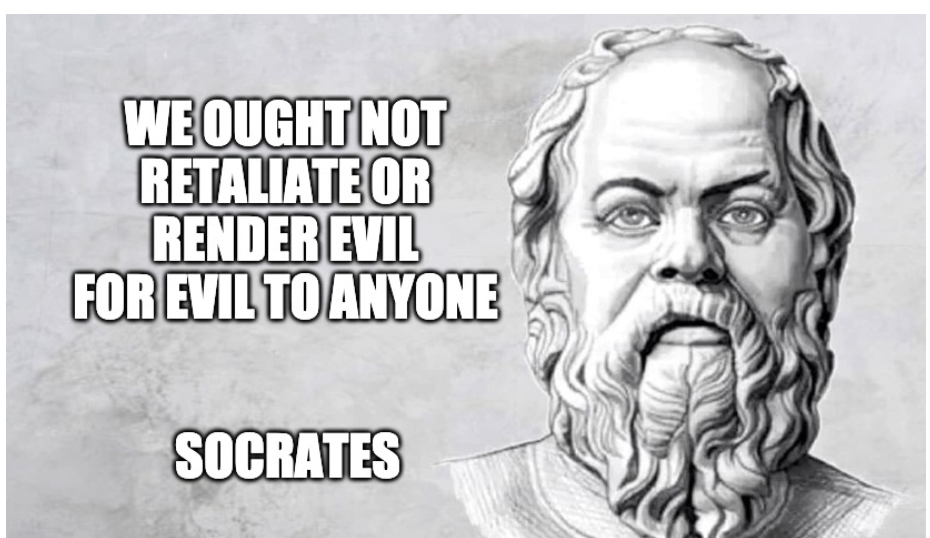This is a season of malevolent hope. Hope is usually positive. So this may seem strange. But the desire to see enemies suffer is common, as is the urge to burn things down in pursuit of power.
We see malevolent hope when Republicans imagine benefiting from civil unrest. Kellyanne Conway said last week that “chaos and anarchy” are good for Trump’s re-election.

Another example showed up this week when the president told his supporters to vote twice to test the electoral system. If the system is broken, Trump gets extra votes. But if chaos ensues, after Trump voters are charged with the crime of voting twice, this reinforces Trump’s claims about a broken system.
Democrats may have their own form of malevolent hope, perhaps secretly hoping that a vaccine does not appear until after the election. Republicans are already accusing Democrats of wanting to block the vaccine. Conservative columnist Betsy McCaughey claims that the Democrats “wish failure” on every COVID-19 breakthrough.
It is obviously wrong to wish for the worst as a bridge to the better. It’s cruel to desire more disease. It’s evil to cultivate chaos. It’s perverse to encourage criminality and felonious voting.
But malevolent hope is as common as greed and envy. When a relationship sours, you hope your former lover suffers. When a rival is winning, you wish he would fail.
Good people realize this is wrong. Such thoughts ought to be repressed. Wicked wishes can give birth to evil deeds.
Politics often slips down this devilish slope. Terrorists actively seek to make things worse. They attack in order to provoke a backlash. Once the backlash occurs, they say, “see, I told you—those guys are oppressive.” A different example comes from Germany in the 1930s. The Reichstag was burned. The Nazis blamed the Communists and soon seized power.
Malevolent hope often includes a story about a savior. The jilted lover imagines himself swooping in and consoling his miserable former love. Political partisans believe that when things get bad enough, their candidate will save the day.
This narrative also appears in apocalyptical faith. Plagues, pestilence, and war are signs of the end times. Does this mean that the faithful should hope for these horrors? That question is a recipe for theological heartburn.
Malevolent hope is connected to gloating. To gloat is to take joy in your enemy’s misfortune. Ancient warrior cultures encouraged gloating. It’s not enough to kill your enemy. The warrior also disfigures his enemy’s corpse and dances on his grave.
Some ancient sources condemn this. The Bible’s book of Proverbs warns against envy, pride, and gloating. One verse says “don’t gloat when your enemy falls and don’t rejoice when he stumbles.” Jesus went even further. He told us to love our enemies.
That may be too much to ask. A basic concern for the common good would suffice. To hope that things get worse actively encourages pain and misery. We should want our rivals to succeed in business, politics, and even in love because we want happiness to spread.
To the jilted lover we say that if you really loved her, you should hope she finds joy in her new relationship. And patriots should want peace, justice, and prosperity regardless of who is in the White House.
But we are jealous and greedy. And we tend to fight evil with evil, violence with violence. Malevolent hope grows out of selfish pride and a zero-sum view of the world.
This is corrupt and self-defeating. It is simply wrong to wish harm upon others. Peace and prosperity require cooperation, solidarity, and concern for the common good.
It is difficult to remember this lesson of common decency in a world that has grown ugly and angry. But common sense tells us that if we hope things will get worse, they probably will. It is easy for things to fall apart. Holding them together is difficult. Creating something better is harder still.
For things to improve, we need positive hope. Benevolent hope affirms human creativity. It keeps open the possibility of enemies becoming friends. This is the kind of hope that grows from love and wants joy to spread. It is a hope that builds instead of burns.



